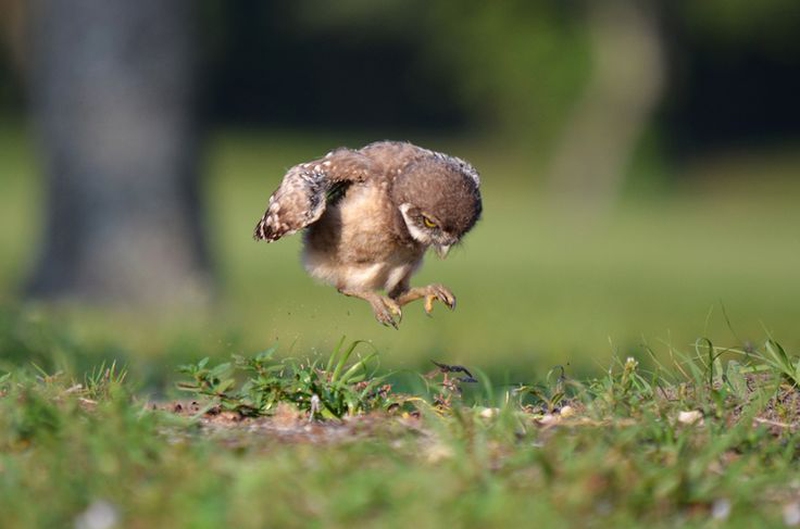At the slightest touch of their nests, baby birds helplessly open their mouth in anticipation of something to feed on, which is usually a disturbing sight for every birder. Any kind hearted person will always have a desire to feed the young one. Well, that is definitely a good thought but, it is always important to know what to feed a baby bird. Knowing the best nutrition diet for a baby bird is very useful for every birder who wants to get fulfilling results and see the young one grow into a fully grown bird.

Things to Look Out For Before Feeding a Baby Bird
It is very important to note the development stage of the baby bird to know whether it is a nestling or not. You can tell it is one if it has few premature feathers or almost none. The young one can barely move and is mostly uncovered. Feeding such a young one is done severally during the day. However, a bird that has developed to stage of learning how to fly may be treated differently. At this stage, it is a fledgling with fully grown feathers and can move around. Feeding the baby bird at this stage may not be easy. It can accept food from its parents and soon start feeding on its own.
Most importantly, you need to analyze the response behavior of the bird. A bird that gapes will be fed differently from one that sucks regurgitated particles of food from the beaks of their mothers. A gaping baby bird that opens its mouth to be fed has a beak stained with a yellow coloring both to the inside and outside. The coloring may be yellow-white at times. A baby bird that cannot respond by gaping or opening its mouth does not have these colorings. Based on these responses, you can determine whether the baby bird can be fed on cat food or not.
The feeding requirements for baby birds are very important to note. The frequency of feeding is usually determined by their type of species and their age as well. A baby bird can be fed for every 10-20 minutes for a period of 12 hours or slightly more in a single day. Baby birds require a lot of proteins. Therefore, insects could just be a perfect diet for their growth. This is a very delicate feeding program with specific details and requirements. Should you find a baby bird that needs feeding, it is important that you move it to a better facility if you don’t have the right food ingredients and equipment for its feeding. It is important not to let the baby suffer in your hands while their parents had not abandoned them.
What to Feed a Baby Bird
When you have found a baby bird and you have not located someone who can rehabilitate it, make every effort to know what to feed a baby bird. A baby bird needs a diet that will nourish it naturally. Wild birds have different nutritional needs and it is important you know about them. However, various kinds of foods can be used when deemed necessary. The most important thing to know at all times is that, the nutritional needs for birds are also different based on their development stage.
Baby birds can feed on:
Dog biscuits
Cat or dog kibble
Uncooked liver
Hard boiled eggs
Moist dog food
Avoid the following on baby bird’s diet:
Milk
Bread
Whole birdseed
Worms
Pet bird food
Water
As the baby bird grows, it can start taking adult food. Again, the rate of feeding from time to time reduces as it matures to a fully grown bird.
How to Feed a Baby Bird
While feeding a baby bird, some things look obvious yet so important.
The food for your baby bird should be at room temperature.
Feeding should be done through hand or by way of dull tweezers. Forceps can also be used.
One hand should be placed over the bird’s wings and back. While the head is in a vertical position, signal that it’s feeding time by tapping the bill base lightly.
As the baby bird gaps its mouth, drop some food down the throat cautiously not to harm the throat skin. Feed liquids should not be forced down the throat.
You should be able to tell that the baby bird is full when it does not gape.
Dos and Don'ts When Feeding a Baby Bird
What to DO for a Baby Bird
Baby birds need a lot of protein in their diet as they grow. Soft-bodied insects of various kinds are highly recommended as protein supplements.
Offer various foods for baby birds. It is important for their diet.
Place food at the back of their mouth to trigger a swallowing reflex.
Feed baby birds after every 20 minutes during the day.
Encourage baby birds to open their mouths to prepare them for feeding.
Baby birds will sleep during the night, a time when their parents will not feed them.
Keep nestlings warm because they are mostly naked.
Placing food in the baby bird’s throat can be done using a toothpick.
Dry cat food can be given to a baby bird when there is insufficient food.
What NOT TO DO for a Baby Bird
No sugar water should be given to the baby bird.
Avoid giving bread to the baby bird.
The baby bird should not be given a steady diet of a particular food.
The diet of your baby bird should not include worms.
Your baby bird should not be given water directly into the mouth. The water in the food is enough for them.
The baby bird does not need a bath. So avoid it completely.
Birdseed is not recommended for your baby bird.





View All Comments /Add Comment